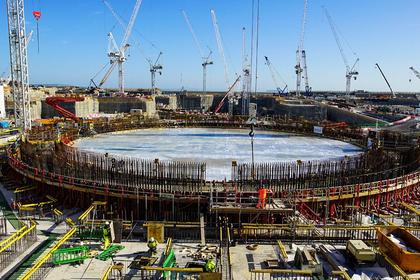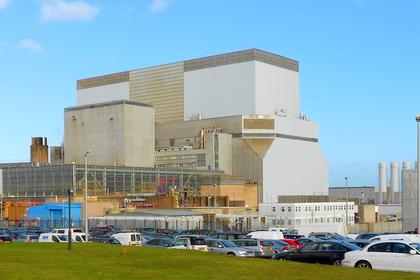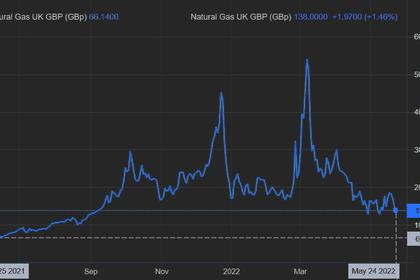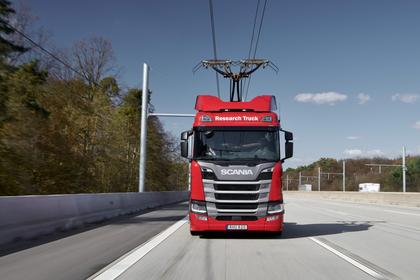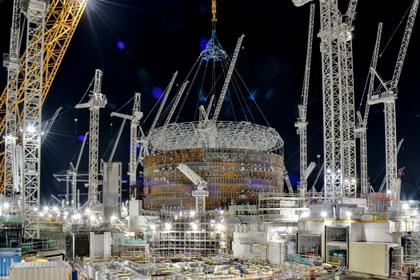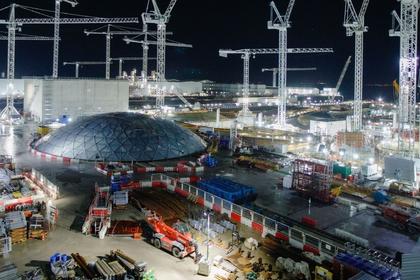
BRITAIN'S NUCLEAR HYDROGEN
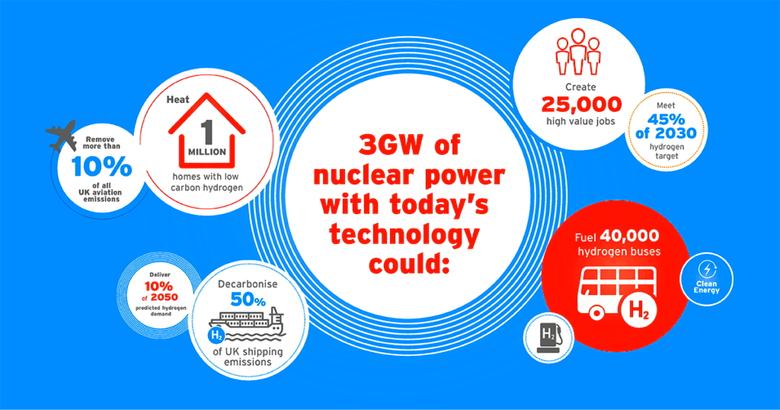
WNN - 21 June 2022 - Decisive and early government action is needed to embrace the power of nuclear-enabled hydrogen (NEH) in delivering net-zero, according to the UK Hydrogen and Fuel Cell Association (UK HFCA).
In a position paper, UK HFCA urges the government to support the potential of NEH with legislation, financial backing and more nuclear sites to allow it to become a future energy player in the race to net-zero.
In its paper - titled The Role for Nuclear Enabled Hydrogen in Delivering Net-Zero - UK HFCA highlights the valuable attributes of NEH, including the fact it is zero-carbon, has low-cost energy input, is large-scale and offers co-location synergy and energy system connectivity.
The paper notes that a single nuclear power plant has the potential to generate enough hydrogen to decarbonise the heating of one million homes or 40,000 hydrogen buses from a site no more than a few square miles in size, with technology that is available today.
UK HFCA concludes that investment is urgently needed to get NEH projects off the ground. Key recommendations for bringing NEH into the energy mix by 2030 and enabling future growth of the energy vector include accelerating the roll-out of new nuclear plants to produce NEH, building on synergies between industrial clusters and NEH, and providing incentives for NEH.
"Net zero solutions require hydrogen to be produced with a zero GHG footprint, which means electrolyser operators will need to source their electricity from renewables and/or nuclear power," said Marcus Newborough of ITM Power, a member of the UK HFCA. "Unfortunately, it's difficult for an electricity grid to match supply and demand by integrating a substantial capacity of base-load nuclear generation, while at the same time integrating a substantial capacity of variable renewables.
"Electrolysis can provide the flexibility required to solve this challenge by absorbing nuclear electricity at times of high renewables generation - or vice versa. In addition, it can provide the means for matching nuclear power generation to the steady-state demand for hydrogen that characterises several of our essential chemical processes, such as ammonia and methanol production."
He said that nuclear-enabled hydrogen can therefore "play an underpinning role in achieving net-zero, both for the electricity grid and for industrial clusters."
The position paper also noted that NEH could play a key role in meeting the new UK production target for low-carbon hydrogen - which has risen from 5GW to 10GW by 2030.
"3GW of nuclear power with today's technology could produce enough hydrogen to meet 22.5% of this new target," said Celia Greaves, CEO and founder of the UK HFCA. "And in light of the recently updated targets for UK nuclear power - with plans now for 24GW to be online by 2050 - decisive early action is key. With projects reaching final investment decision each year until 2030, the role of NEH in these proposed plant operations must be considered today and decided on in the near future."
Greaves said NEH also offers benefits and roles across the energy system that are not currently recognised in the key energy system models used by the UK government.
"These include coupling large-scale nuclear power stations with electrolysers to generate high purity hydrogen required for fuel cell vehicles, decarbonising the gas grid, decarbonising marine transport with ammonia and decarbonising flights with synthetic aviation fuels," she said.
"The report highlights the potential for NEH to provide 40GW of hydrogen generating capacity to support decarbonisation by 2050, based on a range of flexible operation of planned capacity and increased demand from alternative applications currently unrecognised in energy system models," noted Allan Simpson, Senior Research Technologist at the National Nuclear Laboratory, and chair of UK HFCA's Nuclear Enabled Hydrogen Working Group. "The hydrogen sector recognises the unique role that NEH can play to support decarbonisation, alongside all other technologies. With the right combination of government support and industry action, delivering these ambitious goals will help deliver net zero and secure energy supplies for the future."
-----
Earlier:
